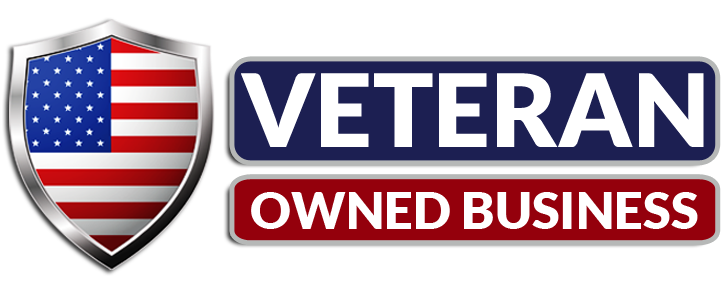Don’t panic. Being blamed doesn’t mean you’re at fault. Here’s what Colorado law says—and how to fight back.
“They’re Saying It’s My Fault?” You’re Not Alone.
You were hit by a massive truck. You’re recovering from serious injuries, dealing with medical bills, and trying to keep your life from falling apart.
Then the insurance letter arrives—or worse, a phone call. They’re blaming you for the crash. It’s shocking. Infuriating. And it happens far too often. At Fisher and Associates, we’ve seen this tactic used again and again. Trucking companies—and their billion-dollar insurance carriers—have one goal: protect their bottom line. If that means blaming the victim, they won’t hesitate. But here’s what you need to know: being blamed doesn’t mean you’re actually at fault. And even if you share some fault, Colorado law may still entitle you to significant compensation.
Why Trucking Companies Try to Shift the Blame
When a fully loaded semi-truck causes a collision, the damages are usually severe—and the financial exposure for the trucking company is huge. We’re talking hundreds of thousands to millions of dollars in liability.
So what do they do?
They flip the script.
- “The other driver was speeding.”
- “They changed lanes without signaling.”
- “They braked suddenly and caused the crash.”
- “They weren’t paying attention.”
These arguments are designed to do one thing: reduce what they have to pay.
And they’re not just speculative—they’re backed by corporate legal teams, risk management departments, and trained adjusters who know exactly how to twist the facts.
Colorado’s Modified Comparative Negligence Law: What It Means for You
In Colorado, the legal system recognizes that more than one party can be at fault in an accident. It uses a rule called modified comparative negligence—and it’s critical to understand how it affects your case.
Here’s how it works:
- If you are less than 50% at fault, you can still recover damages.
- Your compensation is reduced by your percentage of fault.
- If you are 50% or more at fault, you recover nothing.
Example:
- You’re awarded $200,000 in damages
- You’re found 30% at fault
- You receive $140,000 (after a 30% reduction)
This is why trucking companies work so hard to push your “fault” past the 50% mark. If they succeed, they don’t have to pay anything.
What to Do If You’re Being Blamed for a Truck Crash
First things first: don’t panic. And don’t respond without legal advice.
Trucking companies move fast. Within hours of a crash, they may have investigators on the ground, data analysts reviewing logs, and insurance reps calling you for a recorded statement.
Here’s how to protect yourself:
1. Don’t Give a Recorded Statement
Insurance adjusters will ask leading questions. Their goal is to get you to say something that can later be twisted against you.
2. Gather Your Own Evidence
If possible, collect:
- Photos of the crash scene
- Your vehicle damage
- Contact information for witnesses
- Police reports or citations
- Dash cam footage or traffic camera data
3. Call an Attorney Immediately
A truck accident lawyer can:
- Send legal notices to preserve black box and GPS data
- Access driver logs, maintenance records, and prior safety violations
- Hire accident reconstruction experts
- Review police findings and challenge biased reports
How Fisher and Associates Fights Back
When the other side tries to shift blame, we don’t just argue—we build a case with evidence.
- Accident Reconstruction: We work with experts to recreate what really happened.
- Data Review: We obtain electronic logging device (ELD) data, black box info, and dispatch communications.
- Witness Interviews: We gather objective testimony that refutes biased narratives.
- Driver & Company Records: We investigate past violations, fatigue issues, or hiring failures that contributed to the crash.
We don’t accept their version of the story. We prove the truth.
Why Fisher and Associates Is Built for This Fight
Not every firm knows how to go toe-to-toe with a commercial trucking insurer. We do.
- Veteran-Led: Our founder, Paul Fisher, is a military veteran who brings discipline, calm under pressure, and tactical precision to every case.
- Attorney-First Model: You speak directly with your lawyer—not a call center.
- Strategic and Aggressive: We anticipate insurer tactics and hit back with stronger facts.
- Trial-Ready: We don’t fold under pressure. If they don’t offer what’s fair, we take them to court.
What to Do Right Now
If you’ve been injured in a truck accident and the company is trying to blame you, your window to act is closing. Evidence disappears. Memories fade. And the narrative hardens.
Your 3-Step Plan:
- Call Fisher and Associates for a Free Consultation
We’ll listen to your story and explain your rights—at no cost to you. - We Launch an Immediate Investigation
We preserve evidence, dispute the blame, and take over the legal pressure. - You Focus on Recovery While We Fight for What’s Fair
We handle the strategy. You focus on healing.
Blamed for a Truck Crash? Don’t Let Their Story Cost You Everything.
You didn’t cause this. And even if they say you did, that’s not the final word. Call Fisher and Associates today for a free, no-obligation consultation.

Erica Long represents plaintiffs in all forms of accident cases including car and motorcycle accidents, wrongful death, and slip and fall injuries. She is licensed to practice law in both the State of Colorado and the State of California. Ms. Long earned her bachelor’s degree from the University of California, Berkeley and her Juris Doctor degree from the University of California, Berkeley School of Law.

